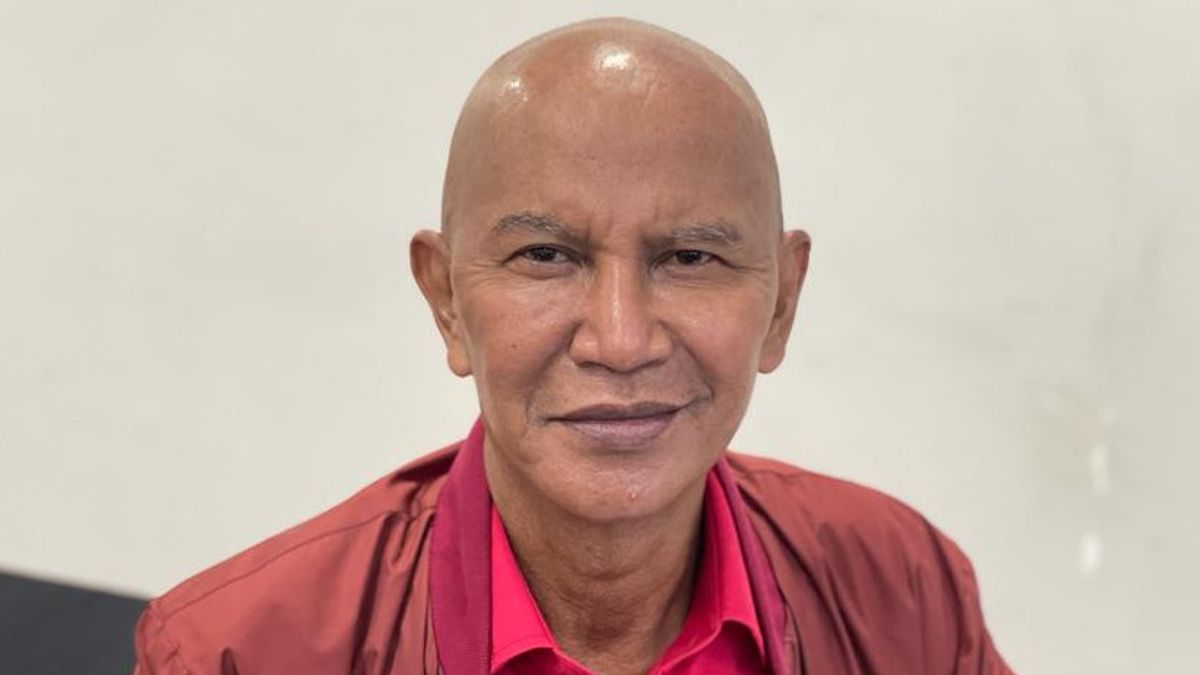JAKARTA - Chairman of the Budget Agency (Banggar) of the House of Representatives (DPR), MH Said Abdullah asked the government to increase the allocation of the social protection budget ceiling (perlinsos) in order to reduce the burden on the people ahead of Ramadan. This is because the Perlindos program is effective as a social stabilizer with a very wide range of beneficiaries.
"So I appeal to the government to strengthen this social security policy. Moreover, we will soon enter the month of Ramadan," Said said in his statement, Tuesday, March 15.
According to him, the government has done this by increasing the budget, starting with the Family Hope Program (PKH), Non-Cash Food Assistance (BPNT), to Pre-Employment Cards.
For 2022, the Perlinsos budget has been set at Rp. 154.8 trillion. This social security program is very important because it reaches 37.9 million subsidized electricity customers, 8 million metric tons of 3 kg LPG, 7.5 million BLT recipient families in rural areas, 10 million PKH recipient families.
Not only that, this program also reached 18.8 million families receiving basic food cards, 20.2 million students receiving KIP, and 96.8 million families receiving PBI JKN.
"Therefore, I support the increase in the social security program ceiling of up to IDR 15-17 trillion. This is important so that people's purchasing power is maintained. So immediately do the thickening, add the Social Security budget. This must be urgent and important. Because we will enter the fasting month soon," Said said.
In addition to thickening social policies, the PDI-P senior politician asked the Food Task Force to continue to monitor and operate the market swiftly, anticipating efforts to hoard stock, price games, and non-compliance with the implementation of the Domestic Market Obligation (DMO) and Domestic Price Obligation (DPO) policies for several commodities.
"For this reason, the Food Task Force, assisted by law enforcement officers from the police, from the center to the ranks of the Polsek in the District must participate in monitoring to ensure that the distribution of food ingredients is truly available in the community," he explained.
Meanwhile, anticipating the scarcity of cooking oil, Said asked the government to secure stock supplies with exporting countries for various main commodities supplied from imports. The scarcity of cooking oil should be a serious lesson for the government.
"Our oil and gas supplies are mostly from Saudi Arabia, Singapore, Malaysia, the United Arab Emirates, Nigeria and the United States. So far, only the United Arab Emirates has been able to increase its oil production capacity to the global market," he explained.
Therefore, the government needs to ensure to these countries, including looking for alternatives, for example from Venezuela and Iran, even though both are currently under US sanctions.
In addition, Said stressed, the government needs to ensure compliance with hedging for a number of business entities that carry out imports, both state-owned and private. High commodity prices obtained from imports have the potential to put pressure on currency exchange rates.
"The depreciation of the rupiah will have an impact on the burden of increasing the burden and interest on government and private foreign currency debt," he added.
Voluntary disclosure programFurthermore, Said explained that at the beginning of March 2022, the Taxpayer Voluntary Disclosure Program reached Rp. 21.44 trillion, an increase from February 2022 of Rp. 18.72 trillion.
For prices that are intended to invest in the energy sector, the government must accelerate energy investment, especially renewable energy. At least in the near future we can realize the B40 program to reduce dependence on imported oil supplies.
In addition, the expansion of the export base, especially commodities, can indeed be carried out quickly. Last year, Indonesia recorded a positive trade performance due to the increase in prices of mainstay export commodities such as; palm oil, coal, and various spice commodities.
Moreover, the HPP Law provides incentives for exemption from Value Added Tax (VAT) for export goods and services. The purpose of this exemption in the HPP Law is to encourage the contribution of national exports to be greater in the GDP structure, which is still dominated by household consumption by 54 percent. In addition, it will thicken foreign exchange reserves.
"Imposing a VAT rate of 11 percent as of April 1 selectively, especially education and health that are not business-oriented. And to compensate for the lack of VAT receipts related to this, the government can use the provisions of Article 7 paragraph 3 of the HPP Law to increase VAT above 11 percent on goods subject to VAT others," he concluded.
The English, Chinese, Japanese, Arabic, and French versions are automatically generated by the AI. So there may still be inaccuracies in translating, please always see Indonesian as our main language. (system supported by DigitalSiber.id)










